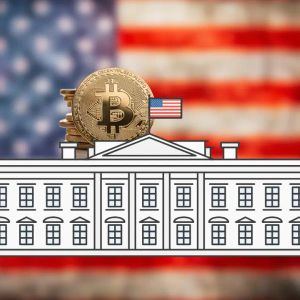Banks face pressure from crypto and conservative groups
3 min read
The White House is gearing up to issue a sweeping executive order aimed at cracking down on banks accused of discriminating against conservative organizations and cryptocurrency businesses. A draft of the order, reviewed by The Wall Street Journal, reveals that financial institutions could face stiff penalties for denying services based on political affiliations or ties to the crypto industry. The directive would require federal regulators to investigate potential violations of key laws, including the Equal Credit Opportunity Act, antitrust regulations, and consumer protection statutes. Banks in breach could be subject to fines, lawsuits, or compelled to enter legally binding agreements to reform their practices. While the order could be signed early this week, sources say the timeline remains fluid amid internal administration deliberations. If finalized, the move would signal a significant step by the Trump-aligned administration to safeguard banking access for groups it believes are being unjustly excluded—particularly conservatives and crypto-related entities. Banks face pressure from crypto and conservative groups For years, many conservative organizations and cryptocurrency-related companies have claimed that banks have closed their accounts or denied them financial services for political or ideological reasons. Some groups say they were flagged or dropped simply for holding conservative beliefs. Others in the crypto industry claim banks cut them off to avoid regulatory pressure, even if no laws were broken. One high-profile case, which is indirectly referenced in the draft order, involved Bank of America. The bank reportedly shut down accounts from a Christian group operating in Uganda. The organization accused the bank of targeting them for religious reasons. However, Bank of America responded that the decision was based on policy, not politics. The bank said it does not serve small businesses operating outside the U.S. as a matter of standard practice. The draft order also criticizes banks for their role in sharing customer data with law enforcement during the January 6 Capitol riot investigation. Some banks voluntarily flagged customer transactions or activity they believed were linked to the event. Supporters of the executive order say this sets a dangerous precedent where banks may act as political gatekeepers. Meanwhile, crypto companies have faced a long struggle to access banking services. Under the Biden administration , several firms have complained of being shut out from traditional banking due to what they call a “shadow ban” by regulators. Banks, on the other hand, argue that they are responding to legitimate compliance risks, especially when dealing with digital assets, which have been linked to fraud and money laundering. Many cite U.S. anti-money-laundering laws and a lack of clear guidance as reasons for caution. Banks act to avoid regulatory crackdown Over the past few months, several major financial institutions have updated their internal policies to clarify that they do not discriminate based on political belief or affiliation. Others have held meetings with Republican attorneys general to reassure them of their commitment to fairness. A spokesperson for Bank of America said the institution welcomes efforts by the administration to bring greater clarity to the rules. “We’ve provided detailed proposals and will continue to work with the administration and Congress to improve the regulatory framework,” he said. The draft executive order also includes new instructions for federal agencies. It calls on banking regulators to eliminate existing policies that may have encouraged banks to consider “reputational risk” when deciding whether to work with certain customers. Banks often use reputational risk to avoid business with politically sensitive or high-risk industries. This practice has been controversial. Critics argue it gives banks too much power to act as moral or political judges. Regulators under the Trump administration had previously said they would avoid using reputational risk as a standard. In addition, the draft order tells the Small Business Administration (SBA) to review how participating banks treat loan applicants—especially when those banks guarantee SBA-backed loans. This could affect thousands of small businesses that rely on federal support. KEY Difference Wire helps crypto brands break through and dominate headlines fast

Source: Cryptopolitan



